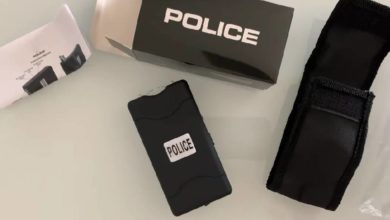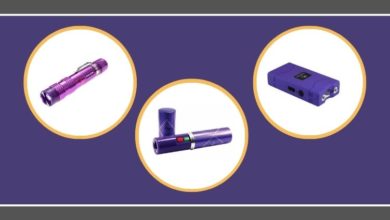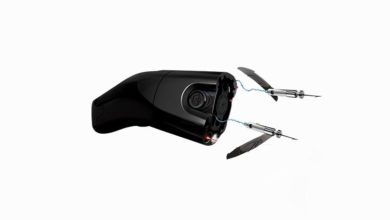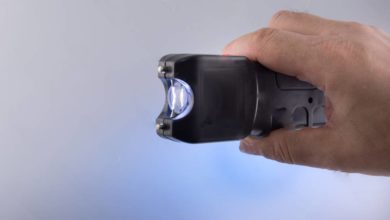How To Treat Pepper Spray: A Comprehensive Guide
KEY TAKEAWAYS
Pepper spray, also known as OC spray (oleoresin capsicum), is a popular self-defense tool used by individuals to protect themselves from potential threats. However, it’s important to know how to treat pepper spray exposure properly, as it can cause severe discomfort and temporary incapacitation.
In this comprehensive guide, we will explore effective ways to treat pepper spray exposure and alleviate its effects. Whether you have accidentally been exposed to pepper spray or want to be prepared for such a situation, this article will provide you with valuable insights and practical tips.
How Does Pepper Spray Work?
Pepper spray is derived from chili peppers and contains an active ingredient called capsaicin. When sprayed, it irritates the eyes, nose, throat, and skin, causing intense burning, pain, and inflammation. The goal of pepper spray is to disable the attacker temporarily, giving the victim an opportunity to escape.
How to Treat Pepper Spray: Immediate Steps to Take
If you find yourself exposed to pepper spray, it’s crucial to take immediate actions to minimize its effects. Here are the steps you should follow:
-
Move to a Well-Ventilated Area: As soon as possible, move away from the source of pepper spray and into an open area with fresh air. This helps in reducing the concentration of the irritant.
-
Keep Your Eyes Open: Despite the burning sensation, try to keep your eyes open. Blinking helps to flush out the irritant and speeds up recovery.
-
Do Not Rub Your Eyes: Although it may be tempting, avoid rubbing your eyes as it can worsen the effects. Instead, gently rinse your eyes with clean water to flush out the pepper spray.
-
Remove Contaminated Clothing: If your clothes have come into contact with the spray, remove them carefully to prevent further exposure. Be cautious not to touch your face or other body parts while doing so.
-
Avoid Oil-Based Substances: It’s important to avoid using oil-based substances, such as lotions or creams, as they can trap the capsaicin and worsen the burning sensation. Stick to water-based solutions for relief.
-
Seek Medical Attention: If you experience severe symptoms or have pre-existing respiratory conditions, it’s advisable to seek medical attention. A healthcare professional can provide appropriate treatment and ensure no complications arise.
How to Treat Pepper Spray: Alleviating the Effects
Once you have taken the immediate steps, there are several measures you can take to alleviate the effects of pepper spray exposure. Here are some effective ways to treat pepper spray:
1. Flushing with Water
Flushing the affected area with water is one of the most effective ways to neutralize pepper spray and reduce its effects. Follow these steps for optimal results:
-
Fill a basin or sink with cool water.
-
Submerge your face, if affected, or the exposed body part in the water.
-
Blink your eyes several times to help flush out the irritant.
-
Repeat the process for a few minutes or until the burning sensation subsides.
Remember to use clean water and avoid using warm or hot water, as it can intensify the burning sensation.
2. Using a Solution of Water and Liquid Antacid
Another effective method to treat pepper spray burn is by using a solution of water and liquid antacid. The alkaline properties of the antacid help neutralize the capsaicin. Follow these steps to create the solution:
-
Mix one part liquid antacid with four parts water in a clean container.
-
Soak a clean cloth or cotton balls in the solution.
-
Apply the soaked cloth or cotton balls to the affected areas.
-
Gently rub the solution onto the skin or affected area for a few minutes.
-
Rinse with clean water afterward.
This method can provide relief from the burning sensation and reduce the inflammation caused by pepper spray exposure.
3. Applying Milk or Dairy Products
Milk and dairy products contain casein, a protein that helps neutralize the effects of capsaicin. Here’s how you can use milk or dairy products to alleviate the discomfort:
-
Soak a clean cloth or cotton balls in cold milk or dairy product, such as yogurt or sour cream.
-
Apply the soaked cloth or cotton balls to the affected areas.
-
Gently dab the solution onto the skin or affected area for a few minutes.
-
Rinse with clean water afterward.
The cold temperature of the milk or dairy product can also provide a soothing effect on the affected area.
4. Utilizing Lemon Juice
Lemon juice contains citric acid, which can help neutralize capsaicin and provide relief from the burning sensation. Follow these steps to use lemon juice effectively:
-
Squeeze fresh lemon juice into a clean container.
-
Dip a clean cloth or cotton balls into the lemon juice.
-
Apply the soaked cloth or cotton balls to the affected areas.
-
Gently rub the solution onto the skin or affected area for a few minutes.
-
Rinse with clean water afterward.
Lemon juice not only neutralizes the capsaicin but also acts as a natural disinfectant for any potential skin irritation.
5. Taking a Shower
Taking a cool shower can help rinse off the pepper spray from your body and provide overall relief. Follow these steps for an effective shower:
-
Adjust the water temperature to cool or lukewarm.
-
Stand under the running water and allow it to flow over your body.
-
Gently wash your face, body, and affected areas with a mild soap or body wash.
-
Avoid rubbing or scrubbing vigorously, as it may worsen the effects.
-
Rinse thoroughly to ensure all traces of the pepper spray are removed.
Taking a shower not only helps cleanse the affected areas but also provides a refreshing sensation that aids in recovery.
FAQs about Pepper Spray Treatment
1. Can I use vinegar to treat pepper spray exposure?
Although vinegar is commonly believed to neutralize pepper spray, it may not be effective in providing relief. It’s best to use the methods mentioned in this article, such as flushing with water or using a water and antacid solution, for better results.
2. How long does it take to recover from pepper spray exposure?
The recovery time can vary depending on the individual and the severity of exposure. In general, the effects of pepper spray typically subside within 30 minutes to a few hours. However, residual discomfort may persist for a longer duration.
3. Can I use eye drops to treat pepper spray exposure?
While eye drops can provide temporary relief from dryness or irritation, they are not specifically designed to treat pepper spray exposure. It’s recommended to flush the eyes with clean water instead.
4. Should I seek medical attention after pepper spray exposure?
If you experience severe symptoms such as difficulty breathing, excessive swelling, or persistent pain, it’s advisable to seek medical attention. A healthcare professional can assess your condition and provide appropriate treatment if necessary.
5. Can I wear contact lenses after exposure to pepper spray?
It’s best to avoid wearing contact lenses immediately after exposure to pepper spray. Remove the lenses and rinse them thoroughly with a lens solution before reinserting them. If discomfort persists, consult an eye care professional.
Conclusion
Pepper spray exposure can be a distressing experience, but knowing how to treat it properly can significantly alleviate its effects. By following the immediate steps and utilizing effective treatment methods such as flushing with water, using antacid solutions, applying milk or dairy products, utilizing lemon juice, or taking a shower, you can minimize discomfort and aid in a speedy recovery. Remember to always prioritize safety and seek medical attention if necessary.
Find out how long pepper spray lasts from our guide at Security Forward.





